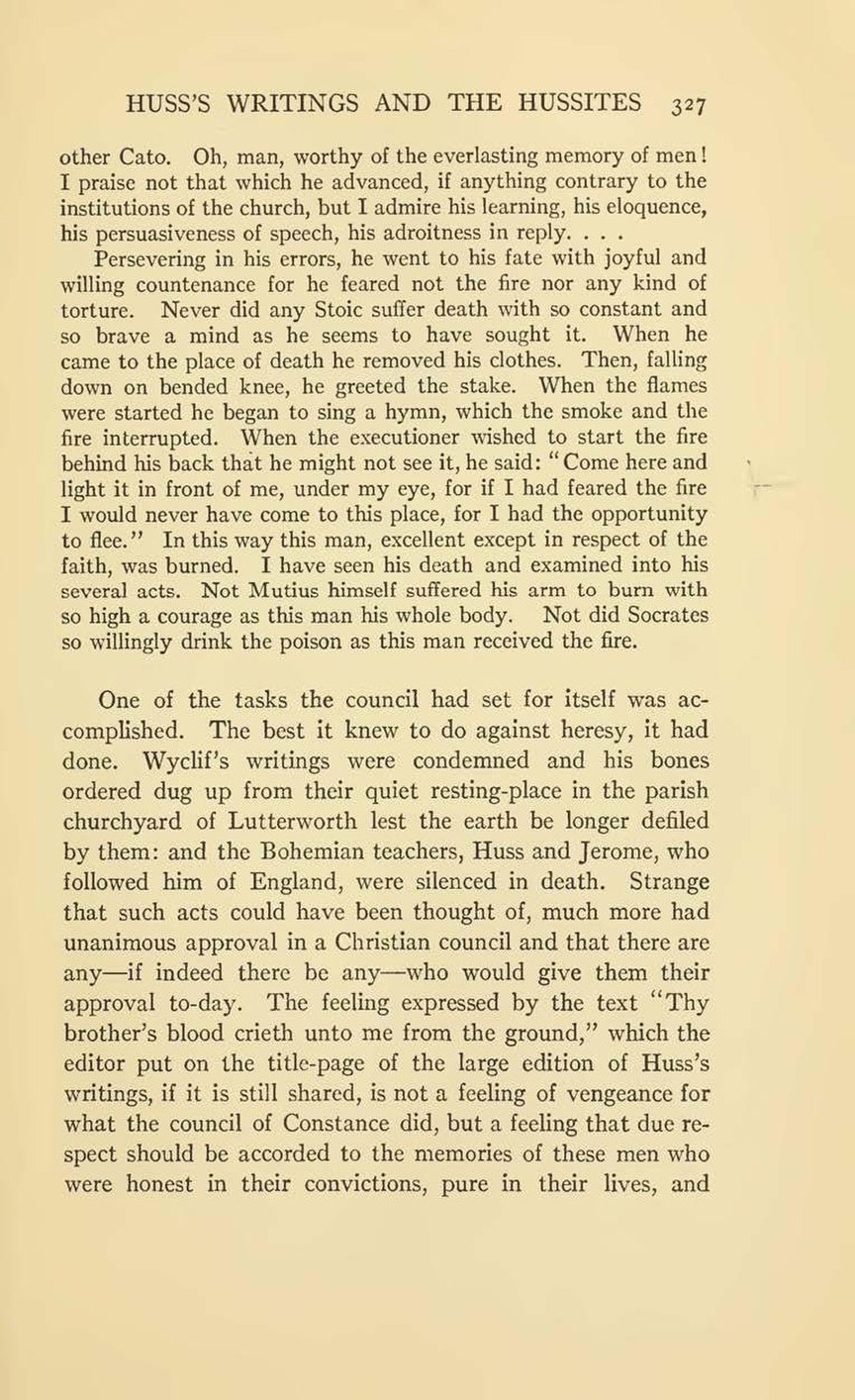other Cato. Oh, man, worthy of the everlasting memory of men! I praise not that which he advanced, if anything contrary to the institutions of the church, but I admire his learning, his eloquence, his persuasiveness of speech, his adroitness in reply. . . .
Persevering in his errors, he went to his fate with joyful and willing countenance for he feared not the fire nor any kind of torture. Never did any Stoic suffer death with so constant and so brave a mind as he seems to have sought it. When he came to the place of death he removed his clothes. Then, falling down on bended knee, he greeted the stake. When the flames were started he began to sing a hymn, which the smoke and the fire interrupted. When the executioner wished to start the fire behind his back that he might not see it, he said: “Come here and light it in front of me, under my eye, for if I had feared the fire I would never have come to this place, for I had the opportunity to flee.” In this way this man, excellent except in respect of the faith, was burned. I have seen his death and examined into his several acts. Not Mutius himself suffered his arm to burn with so high a courage as this man his whole body. Not did Socrates so willingly drink the poison as this man received the fire.One of the tasks the council had set for itself was accomplished. The best it knew to do against heresy, it had done. Wyclif’s writings were condemned and his bones ordered dug up from their quiet resting-place in the parish churchyard of Lutterworth lest the earth be longer defiled by them: and the Bohemian teachers, Huss and Jerome, who followed him of England, were silenced in death. Strange that such acts could have been thought of, much more had unanimous approval in a Christian council and that there are any—if indeed there be any—who would give them their approval to-day. The feeling expressed by the text “Thy brother’s blood crieth unto me from the ground,” which the editor put on the title-page of the large edition of Huss’s writings, if it is still shared, is not a feeling of vengeance for what the council of Constance did, but a feeling that due respect should be accorded to the memories of these men who were honest in their convictions, pure in their lives, and
